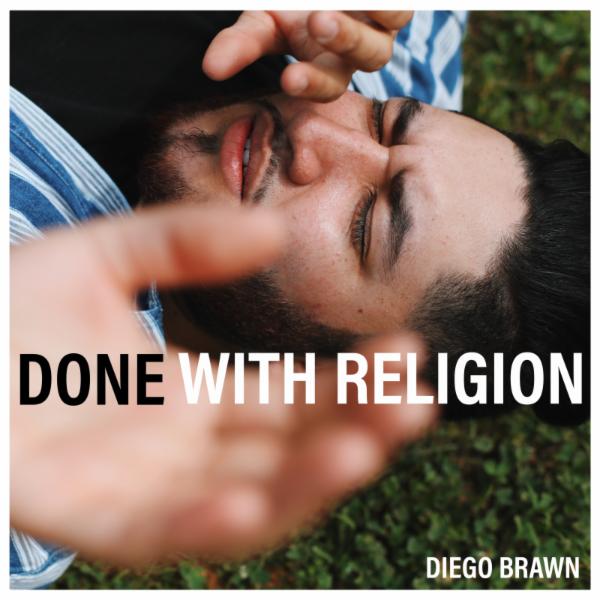By Mike Edwards
If Post too long, read the bold subtitle sections of interest
I post often about the Bible. I have written a short Booklet: Rethinking The Bible – Is The Bible Really Inspired By God? It is natural to assume if God inspired the Bible, God approved all written in the Bible. We must question if the all of the Bible is inspired by God. Claims made about God according to an inspired Bible has keep many from having more of a relationship with God. God may be more like the God you expect!
I am not going to address how the early church in the first few centuries understood what was meant by Scriptures being inspired. I think more important is to address what comes to mind today when one hears claims that the Bible was inspired by God. I am convinced when referring to the Bible as inspired, authoritative, infallible, or God-breathed, people naturally think God approves or agrees with all written in the Bible about God. Since it isn’t possible to prove that God somehow controlled all writings about God, are there good reasons to consider not all of the Bible was inspired by God?
Gregory Boyd’s twist on Inspiration
Boyd wrote a book about the Bible Inspired Imperfection. I can’t carry Boyd’s water, so please read his book. The title of the Book suggests Boyd feels it’s important to hold onto that God inspired the Bible. Many assume we can’t know God if the Bible isn’t inspired. Boyd seems to suggest God somehow allowed wrong views written about God so we might better see ultimate perfection in the person of Christ at the Cross. Numerous passages in the Old Testament God ordered Israel to commit atrocities (“Now go, attack the Amalekites… put to death men and women, children and infants, cattle and sheep, camels and donkeys” (I Sam 15:3). Did God really approve/inspire/have anything to do with such accusations against God to better reveal Jesus? Implying God somehow inspired wrong views about God is just plain confusing.
Can God really control the writings of any Book?
There is no evidence the Bible was dictated by God or dropped from heaven. A written recording of God’s beginnings with the Israelites culminating in the life of Jesus, regardless of inspiration, can still be valuable so we might question and contemplate what a loving God is really like. God’s freedom-giving nature doesn’t support God controlling mental impressions of the biblical writers or performing a lobotomy. If God is perfect, God can no more be controlling than manipulative.
Can we really defend the Bible is somehow inspired by God?
The most common defense for arguing the Bible is inspired is to claim the biblical writers made such a claim. Such logic would not lead those same people to accept the Quran or any book being inspired because it claims to be. We can’t prove God controlled the writings of the writers to always portray God accurately. It is just as likely that the Bible is uncontrolled writings that can encourage contemplating what a loving God is really like. See below concerning the claim that the Bible is “God-breathed.”
More reasons to doubt or question that God inspired the Bible
The list of contradictions may be trivial but are sizable. Did God incite David to take a census of Israel (2 Sam 24:10), or did Satan incite David (I Chron 21:1)? Moral challenges are not so trivial. Did God really inspire acts or language of genocide? I mentioned I Samuel 15:3 claims God told Israel to kill men, women, children, infants, and animals. Numerous passages in the Old Testament advocate violence in God’s name. Would a loving God really approve of such violence, or approve certain laws according to Moses to burn alive sexual offenders (Lev 20:14 21:9)? In my next essay I will suggest an inspired view of the Bible can lead to justifying violence, wrongly condemning people such as gays in God’s name, destroying family relationships, etc.
Besides, the Bible has a complicated history
We don’t have the original autographs. If we believe the Bible we hold is inspired by God, we have to logically insist God controlled the copying or editorial process in the beginning. Also, translation is hardly an exact science. Certain Greek or Hebrew words are translated as Hell over 50 times in the King James version. The NIV uses the word hell 14 times. Some translations don’t use the word hell once. The history of the canon’s development is complicated. The formation of the Old Testament was a long, slow development over centuries. Did God inspire that process? The truth is we can’t know if we have the books of the Bible God intended to convey truth, or there are other books that have been excluded to convey truth about God.
What about when the Bible records “God said”?
Biblical writers didn’t typically claim audible God-speak. “God said” though is recorded hundreds of times in the Bible, but this may be a figure of speech expressing inner impressions about God. Such impressions could be right or wrong. Writers/editors of the Bible weren’t lying about their understandings of God. Exodus 20: 1-17 says “all these words” were spoken to Moses from God regarding the 10 commandments. The 10 commandments are repeated again in Deuteronomy 5:6-18 but with slight word variation. Shouldn’t both passages be the same verbatim?
Karen Keen in Scripture, Ethics, And Same-Sex Relationships points out that a scribe added sentences to the oldest manuscript we know of on Isaiah 2: 9-11. Our current Bibles read (The italicized words added to the original): “So people will be brought low and everyone humbled— do not forgive them. Go into the rocks, hide in the ground from the fearful presence of the Lord and the splendor of his majesty! The eyes of the arrogant will be humble and human pride brought low; the Lord alone will be exalted in that day” (p. 59, 126). Later scribes intensified God’s anger which may or may not best portray God’s true nature. See here for additional examples.
What about the Bible claiming to be God-breathe?
2 Tim 3:16-17 is the only time Scriptures uses the Greek word “theopneustos” which literally means God-breathed: “All Scripture is God-breathed and is useful for teaching, rebuking, correcting and training in righteousness, so the servant of God may be equipped for good works.”
- God-breathed can also be interpreted literally as God-spirited. But the word Scripture isn’t in the original. The Greek word translated as Scripture is “graphis” or writings and isn’t referring necessarily to just the Bible as we know it. This passage can be declaring: God’s Spirit can use all writings (graphis) including Scripture, whether having right or wrong views of God, to equip us for good works.
- Scripture “writings” in this passage could only be referring to OT writings because NT writings weren’t known. The final OT and NT canon wasn’t decided on for centuries.
- Jesus when leaving this earth said His Spirit, not some Book, would guide us in truth (Jn 14:16-17; 16:13). Jesus even said the Scriptures didn’t contain all that Jesus said or did: “Jesus did many other things as well. If everyone one of them were written down, I suppose that even the whole world would not have enough room for the books that would be written.” (Jn 21:25).
In summary, God can speak to us through the Scriptures we have. God can also speak to us through other writings, even possible mediums such as music, so we can be equipped for good works. I have written elsewhere how God’s Spirit may guide us. See here.

Mike Edwards has been writing for Done with Religion for some time and has been a great addition to the site. Mike also has his own site where he writes that can be found at What God May Really Be Like He can be contacted by email at: medwar2@gmail.com























